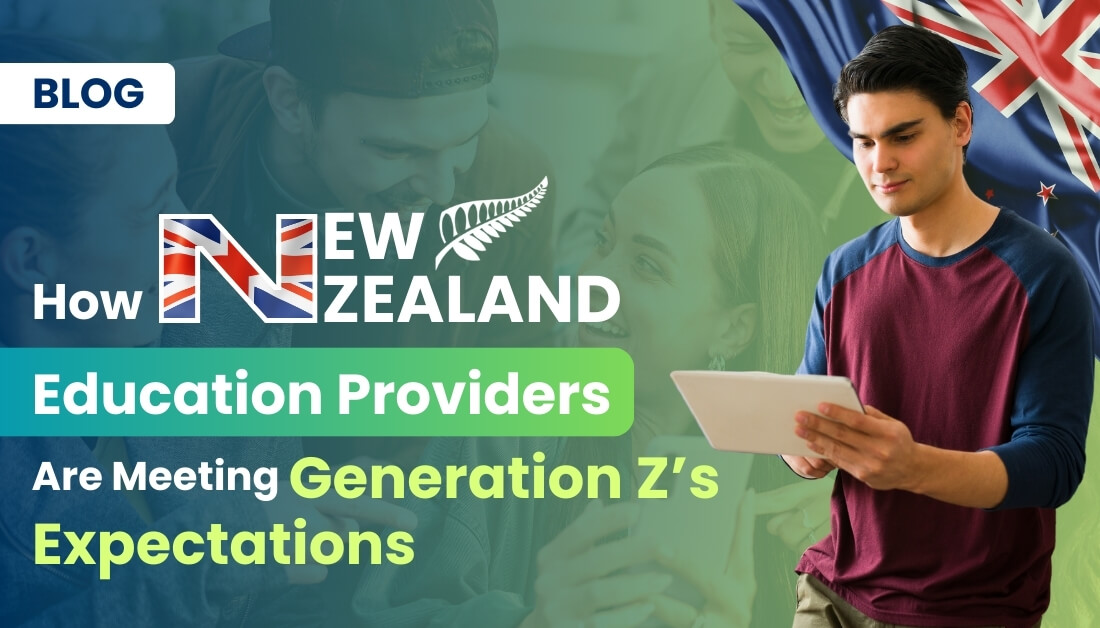

Generation Z, born roughly between the mid-1990s and early 2010s, is reshaping what education needs to look like. They’re digital natives, socially conscious, and highly informed. With unique priorities like access to technology, flexibility, and sustainability, they’re encouraging education providers to evolve rapidly. New Zealand’s education providers have been quick to adapt, pioneering initiatives that align with what Gen Z students truly value. Let’s explore how they’re doing this.
For Gen Z, digital tools are not just an option; they’re a necessity. New Zealand educational institutions are leveraging advanced technologies to provide engaging learning experiences. Platforms like Moodle and Zoom are widely used for online courses and virtual classrooms.
Institutions like the University of Auckland and AUT are investing in virtual reality (VR) labs and augmented reality tools to offer immersive learning experiences in fields like engineering, healthcare, and architecture. For example, Unitec has implemented AR platforms for biodiversity management programs, enabling students to visualize ecological landscapes without leaving the classroom.
Rigid structures don’t work for a generation that prioritizes individuality and self-paced learning. New Zealand education providers are meeting this demand through blended learning models and micro-credential programs.
Micro-credentials, offered by providers like Te Pūkenga, allow students to focus on specific skill sets, ranging from sustainable farming to coding. These short, flexible programs not only fit into busy schedules but also directly align with career goals. Online degree programs and part-time study options are also gaining ground, particularly at Massey University, which has a strong reputation for distance learning.
Sustainability is a core value for Gen Z, and New Zealand’s reputation as a global leader in environmental initiatives aligns perfectly with these ideals. Educational institutions are embedding sustainability into their courses and campus operations.
Victoria University of Wellington, for instance, has committed to becoming carbon-neutral by 2030. Programs like the Bachelor of Applied Science in Biodiversity Management and Environmental Science integrate practical projects on conservation and sustainable practices. Campuses are also leading by example, with green building initiatives, waste reduction efforts, and solar energy installations paving the way for a sustainable tomorrow.
Gen Z is vocal about the importance of mental health, and New Zealand education providers are responding by creating a supportive environment. From free counseling services to well-being workshops, mental health resources are now a central part of campus life.
The University of Canterbury’s “Wellbeing Hub” is a standout example. This online platform offers everything from self-help resources to professional counseling. Many institutions also provide mindfulness programs and peer-support networks to help students manage stress and build resilience.
Preparing for the workplace is a significant concern for Gen Z, and New Zealand education providers are addressing this head-on. Career-focused programs, industry partnerships, and real-world internships have become standard practice.
For example, Auckland University of Technology (AUT) is known for its Work Integrated Learning approach, where students apply their knowledge directly during internships within top New Zealand industries. Polytechnics like Otago and Wintec offer placements and apprenticeships in areas like culinary arts, construction, and technology, cultivating job-ready graduates.
Gen Z’s expectations are more than a wish list; they represent a necessary evolution in how education is delivered. New Zealand’s education providers are leading the way by blending technology, sustainability, flexibility, and support into their programs.
By prioritizing these key areas, these institutions are not only meeting Gen Z’s demands but also preparing them for a future where adaptability and innovation are essential. The result? A generation of confident, skilled, and socially aware graduates ready to take on the world.
New Zealand’s commitment to progress ensures its education system remains not just relevant but inspiring to young minds seeking a brighter future.

Vandana Rai is a Senior Licensed Immigration Adviser and has built a reputation around her rare set of skills, which could be considered ideal for her legal profession.